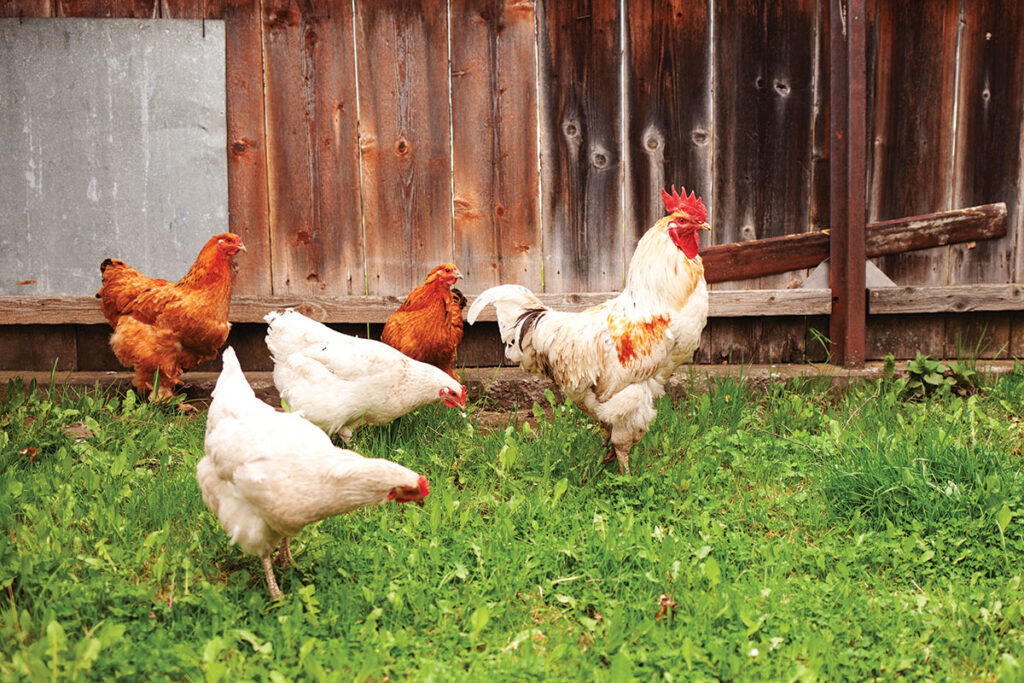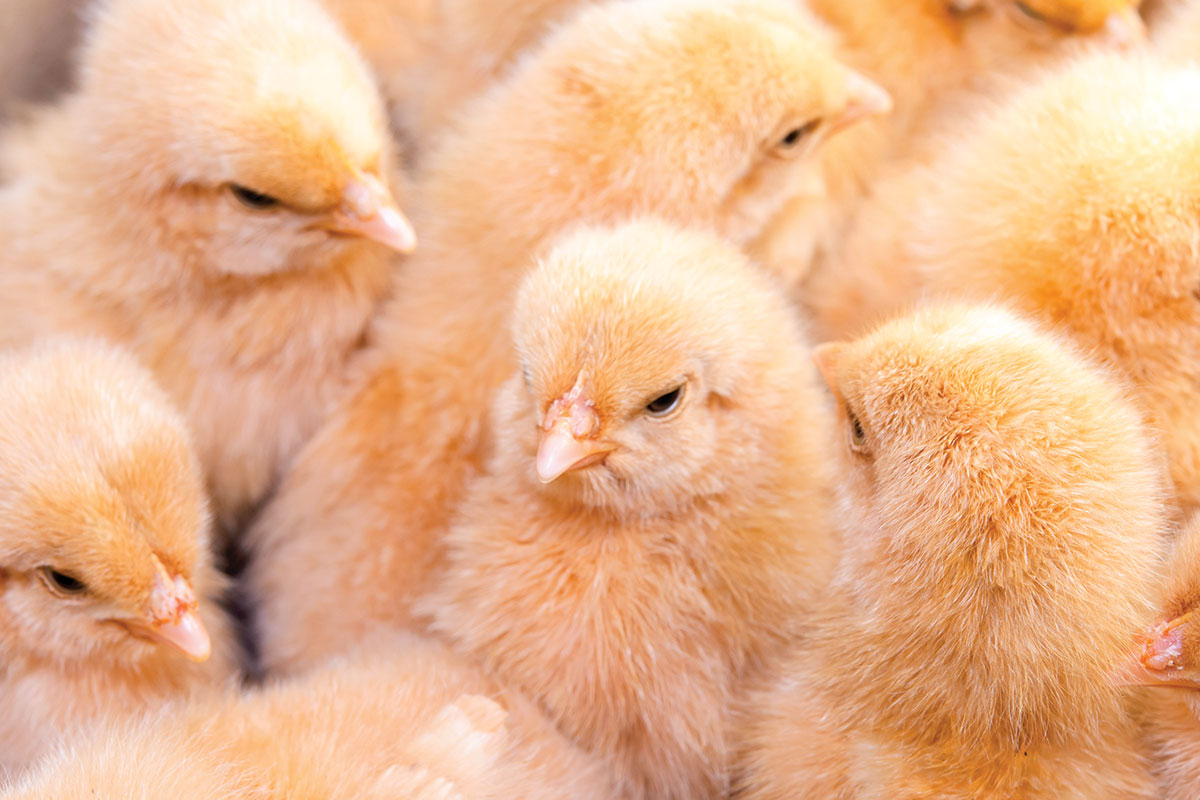
The basics of caring for a backyard flock
Sweet little chicks find a way to make it into many people’s hearts and homes this time of year. Once the soft, feathered babes are a part of the family, there are important steps to take to make sure the chicks grow into healthy, productive chickens.
Regulate Body Temperature
Chicks are not able to control their body temperature from the time they hatch until they reach six to eight weeks old. “It’s not until they have their full adult feathers that they can regulate their body temperature on their own,” Tatijana Fisher, PhD, Missouri poultry specialist and Lincoln University assistant professor, said.
Therefore, during that time period the chicks need supplemental heat. Many people choose to set up a heat lamp in the brood pen to help the chicks stay warm. The chicks require the additional warmth even in the summer months. However, poultry experts also advise taking precautions to prevent the chicks from overheating. “When you are setting up a pen, make sure you are setting up an area where they can get away from the heat lamp. Have a warm end and then a cooler end,” Fisher advised.
Feed Options
At each stage of their life cycle chickens need feed formulated for their particular life stage. For example, chickens starting to lay eggs require a layer feed which contains additional calcium for the development of eggshells and less protein because the chickens are no longer growing. “You can feed them some table scraps and things like that but that’s never going to be their whole diet,” Fisher explained.
This holds true for free-range chickens as well. “Even during the height of summer when there are the most bugs, grass and the most everything. You still want to provide them with seed,” Fisher said. “You may see that they eat a little bit less feed because they are able to pick up a little bit of their diet from free-ranging.”
A rule of thumb for the amount of feed needed is two pounds of feed, per week, per hen. Poultry specialists encourage people to place the chicken seed in some sort of feeder. Spreading the seed on the ground creates waste and increases the risk of parasite exposure.
Water Access
Chickens need constant access to water. When the animals are chicks, particular attention should be made to ensure the chicks don’t drown in their water bowl. Poultry specialists recommend purchasing something made especially for chicks or using a very small, shallow dish filled with rocks. Chicks can easily drown if they cannot get out of the water dish. They can also freeze if they get wet. Another option is using nipple waterers for chicks and adult birds. The nipple waterers provide a consistent, clean water source. Chicks will need to be trained to use these type of waterers.
Roosts and Nest Boxes
Once the chicks become hens, they will need roosts and nest boxes. The roosts should be placed higher than the nest boxes so the chickens don’t sleep in the nest boxes. Nest boxes should be brought out when the hens reach five-months of age, in order for the hens to get used to the nest boxes prior to starting to lay eggs.
Some folks prefer to make nest boxes for their chickens, others choose to purchase them. “If you are buying one, I recommend purchasing one with the roll out feature, so the eggs roll into a container that the hens can’t get to. That makes collection easier, keeps your eggs cleaner, and reduces the likelihood that hens will eat eggs,” Fisher said.
Typically, backyard flocks require one nest box for every four to five chickens. A nest box is not needed for every bird. However, if there are only four or five chickens, set up two nest boxes simply to give them an option.
Coops
When building a coop, it’s advised to use hardware cloth instead of chicken wire. Chicken wire is less expensive, but many predators can easily break through chicken wire. “Use chicken wire to protect your garden from your birds, don’t use chicken wire to protect your birds from the world,” Fisher stated.
Biosecurity
Poultry specialists emphasize the importance taking preventative measures to keep disease away from flocks. Implementing biosecurity measures will go a long way to keep flocks protected from illnesses.






